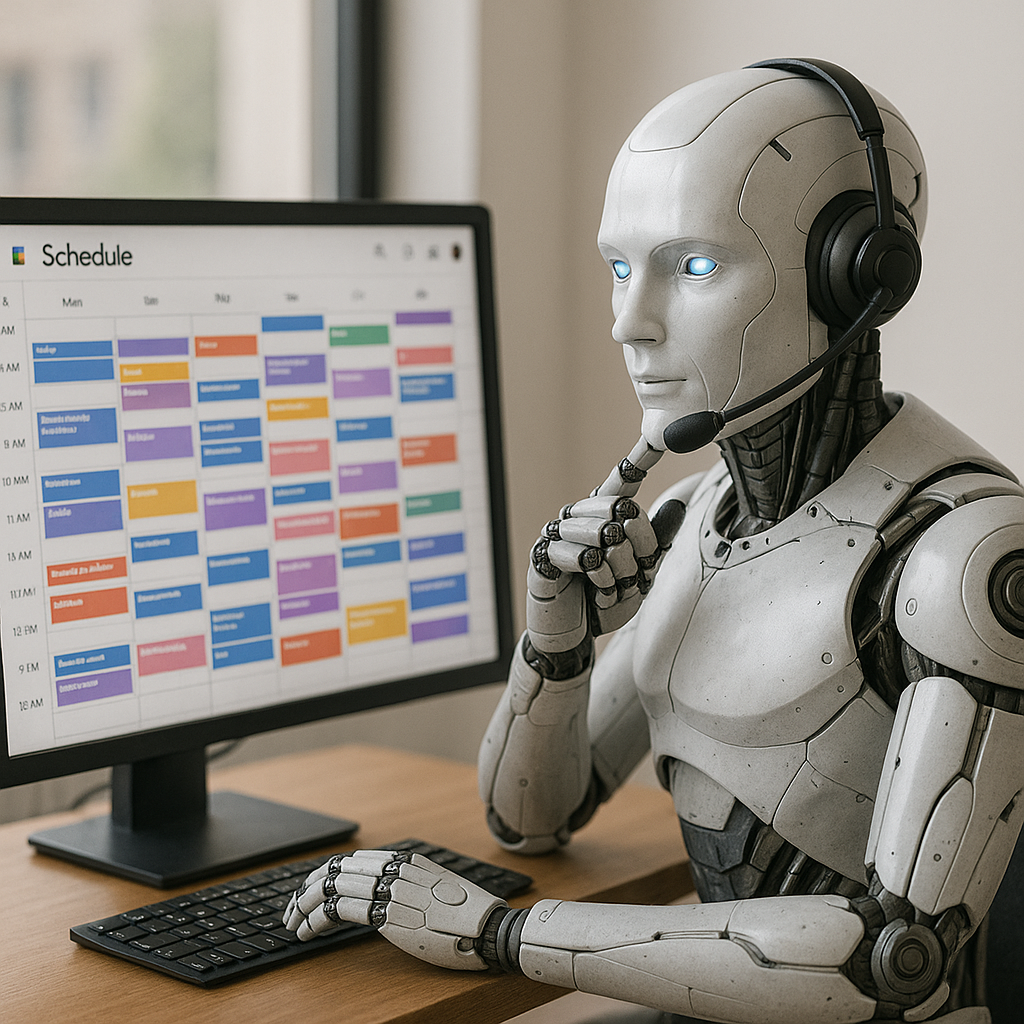
Imagine calling a company and getting help right away, without waiting on hold. Or sending a message on a website and getting the answers you need instantly. That's the magic of AI in customer service.
AI, or Artificial Intelligence is when computers are designed to think, learn, and make decisions like a human. In customer service, AI helps businesses talk to their customers faster and smarter, solving problems and bringing more business than ever. In this article, we are going to dive into how AI customer service can transform businesses.
AI in customer service means using smart computer programs to help customers. These programs can answer questions, solve problems, book appointments, send emails, and even talk on the phone. The goal is to help customers quickly, without making them wait for a human.
Here are the main AI automated tools businesses use:
Let’s break each one down.
What is it? An AI chatbot is a computer program that can chat with people like a real person. You might see them on websites with a message like, "Hi! How can I help you today?"
How it works: The chatbot reads your message, understands what you need, and gives you a helpful answer. It can be used for:
Example: If you type, "Where is my order?" the bot might reply, "Let me check that for you. Can I have your order number?"
Visual Example:
You: Where is my order?
Bot: Please share your order number.
You: #12345
Bot: Your order will arrive on April 22.
Why it's helpful: Chatbots never sleep. They help people 24/7. And they answer quickly—so customers don’t have to wait for a response. Humans are so used to speed and instant results nowadays, so the company that can provide these factors are going to see the most business.
What is it? An AI phone support rep is a robot voice that can talk to people on the phone. You may think it will sound delayed and like a robot, but it doesn’t. Businesses using AI voice assistants are programming these bots to have specific voices, tonality, and personalities that make the conversations sound very natural.
How it works: When someone calls, the AI rep answers. It listens to your words, understands what you're saying, and responds clearly.
Example: Caller: "I want to reschedule my appointment." AI: "Sure! What day and time would work best for you? I can see what we have available."
Why it's helpful: It can:
According to Gartner, by 2025, 80% of customer service will be done through messaging and AI. This prediction is important because it tells businesses that aren't adopting AI are going to have huge disadvantages compared to their competitors.
What is it? Email automation is when a computer sends emails automatically. Businesses can program the software so it knows when to send the right message based on what the customer does.
How it works: If a customer signs up on a website, the system can send a welcome email. If someone books an appointment, it can send a reminder.
Example:
Why it's helpful:
Visual Workflow:
Customer books an appointment →
System sends confirmation email →
Day before appointment, system sends reminder →
After appointment, system sends thank you note
What is it? A workflow is a set of steps to get a job done. An automated workflow uses AI to do these steps without a human.
How it works: When a customer sends a message or fills out a form, the AI can:
Example:
Visual Workflow:
Customer sends message →
AI chatbot responds →
Info added to CRM →
Calendly link sent →
Booking confirmed →
Email reminder sent
Why it's helpful:
Let’s say you run a small plumbing business. You might use AI in three ways:
This saves hours of phone time. And customers are happier because they receive fast answers, at any time of the day.
Is AI replacing humans? Not really. AI is helping humans. It handles small tasks so people can focus on more important work.
Is it expensive? Some tools are free or low-cost to start. Over time, they save more money than they cost.
Can small businesses use AI? Yes! Many tools are made for small teams.
AI is changing how customer service works. It helps businesses reply faster, work smarter, and give better help to customers. Whether you run a big company or a small shop, AI tools like chatbots, phone assistants, email automation, and workflows can make a big difference.
The future of customer service isn’t just about being helpful. It’s about being smart, fast, and available whenever your customers need you.
Sources: